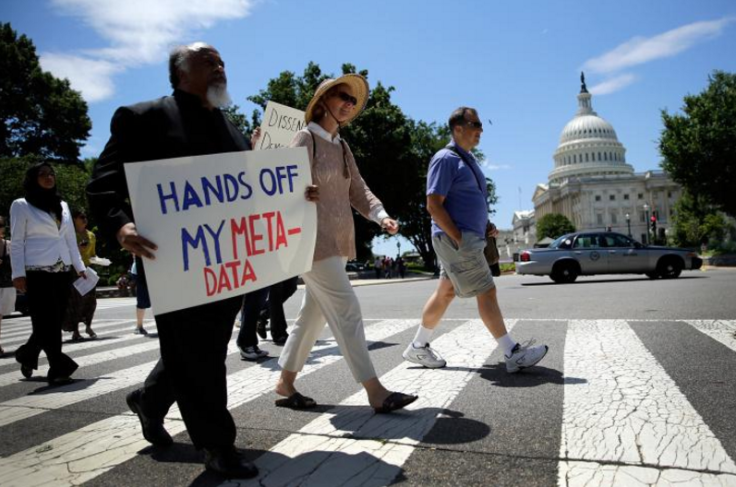NSA Stops Phone Collection, But Agency Can Still Receive Your Call Records, Social Media Data

The phone records of U.S. citizens will no longer be directly pipelined, in bulk, from service providers to the government, as of a court order that goes into effect at 11:59 p.m. EST Saturday. Yet, that mandate does not mean the National Security Agency (NSA) will stop tracking and collecting phone records.
The USA Freedom Act, which passed last summer and took six months to go into effect, forbids the NSA and other law enforcement agencies from collecting phone records in bulk. Prior to that, these agencies could view all Americans call logs, meaning what numbers people called and when, without question.
Starting Sunday, agencies must request a court order to be allowed to ask telecommunication companies for phone records and also must name specific targets. That warrant can also be set for a maximum of six months before having to be renewed. Additionally, the government will have to provide annual records on its data requests.
More Transparency After Leaks
The shift in government policy arrives two-and-a-half years after the method was exposed by former NSA worker and later-famed whistleblower Edward Snowden. He had released thousands of classified files on the 8-year-old surveillance program, known as PRISM, to the Guardian.
“The act struck a reasonable compromise which allows us to continue to protect the country while implementing various reforms,” National Security Council spokesman Ned Price said in a statement, according to Reuters.
However, the USA Freedom Act and the upheaval of the program came under fire, most recently after the Paris attack on Nov. 13. “I think we need to restore the metadata program, which was part of the Patriot Act,” Republican presidential candidate Jeb Bush told MSNBC on Nov. 16.
Republican presidential contenders Ben Carson and Donald Trump also have spoken to a need for databases of American citizens and NSA surveillance. “Hopefully, we already have a database on every citizen who is already here. If not, we are doing a very poor job,” Carson said on Nov. 20 to reporters in New Hampshire, according to CNN.
“If anyone wants to listen to my phone calls, it’s fine,” Trump told Fox News in June.
Yet, the metadata program, as of Sunday, is no more. Instead, the Obama administration will be working on putting into place different, "tightly targeted surveillance methods," Reuters reports.
Shuttering ‘Back Doors’
With PRISM, the NSA reportedly had direct access to Verizon, AT&T, Sprint and other telecommunication companies. So-called back doors, a relationship that allows services to send law enforcement agencies customer data, also extended to Microsoft, Google, YouTube, Apple and Facebook.
But those providers have fought back. In the wake of the terrorist attacks in Paris, social media and tech companies have continued to reject back doors. “Our priority is keeping our users safe, and back doors make them more vulnerable," an employee of a public U.S. social networking company who was not authorized to speak on the record told International Business Times in November after the Paris attacks.
A warrant, such as those now demanded by the USA Freedom Act, provide the backbone of legality for some privacy advocates. “I do not believe that the Justice Department should be able to go to Twitter and ask for anything,” Bernard Kerik, the New York City Police Commissioner during the attacks on 9/11, told IBT. “If they have a warrant, if it's a justified investigation, that’s okay.”
The potential of these back doors between social media networks and the government have not been shuttered. As noted by Gawker, the Guardian’s Ewen MacAskill wrote, “The problem – and it is a major one – is the reform applies only to phone records. The NSA can continue to harvest bulk communications from the internet and social media.”
© Copyright IBTimes 2024. All rights reserved.






















